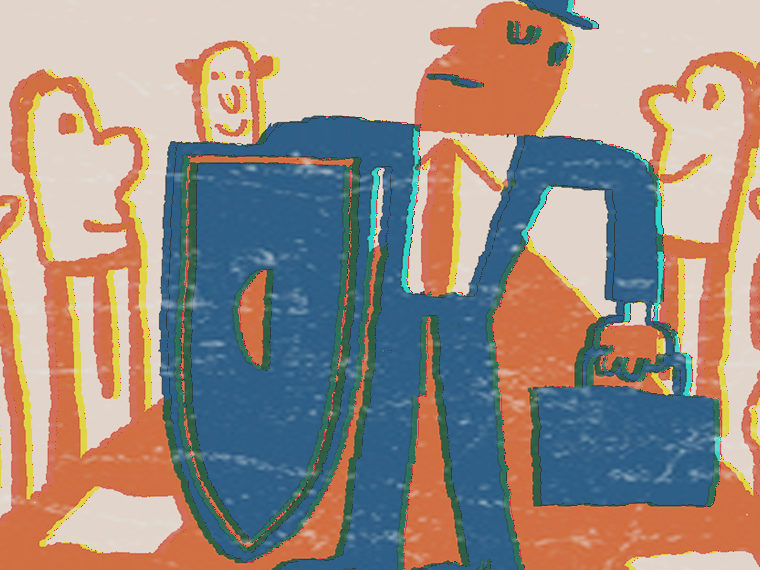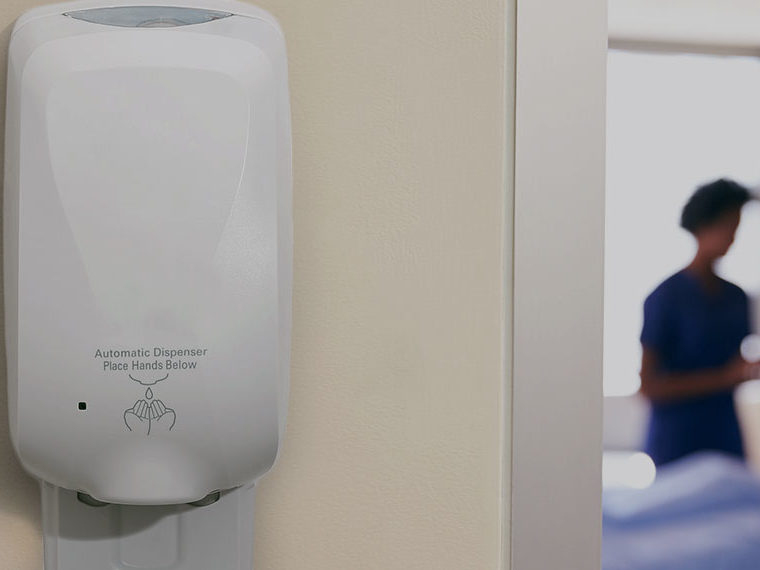Not just the office jerk. Even good colleagues overclaim. Managing around this destructive dynamic isn’t straightforward
Given the likelihood that you are reading this on a device loaded with a cocktail of collaboration apps — Zoom, Slack, Asana, perhaps — you are your own exhibit A for how teamwork has taken over the workplace.
A Harvard Business Review article published in 2016 under the headline “Collaborative Overload” asserted that collaboration has increased by at least 50% over two decades. The journal American Psychologist was prompted to devote a special issue to the science of teamwork in 2018.
The ubiquity of the team-based org chart does not guarantee it yields a resounding net positive for the rank and file, or for management. Sure, many people love workplace teams; others, not so much. Reflektive found that a minority of workers — 4 in 10 — said being part of a team inspires them to perform better. A 2019 Deloitte survey found that just half of team-focused orgs reported a “significant” increase in performance.
Opt In to the Review Monthly Email Update.
Taking Too Much Credit
Among the many factors that can make collaboration a managerial challenge is the tendency for individual actors to take too much credit for a group’s output, a habit referred to as “overclaiming” in academic circles.
If you labor in a non-teamwork setting, doing your work and reporting to a boss, you may be wondering: Why are workers left to claim credit at all? What happened to managers? Aren’t they supposed to judge their subordinates?
But in many modern operations, multilevel hierarchy has been done away with, and peers — subject matter experts more or less on the same level — collaborate. Extreme specialization of labor and heightened urgency also encourage the use of teams to tackle projects.
A seminal piece of research published 40 years ago exposed the overclaiming dynamic within households. When married couples were asked to tote up their share of the effort to complete more than a dozen household chores (I did X%, he/she did Y%), the tendency was to overstate one’s contribution: the sum frequently added up to more than 100%.
Egos run wild? A function of other relationship issues? Not exactly. While there’s undoubtedly a tendency to view ourselves in a positive light, the same research found that there was also overclaiming of being the argument instigator, suggesting we’re not predisposed to “overclaim” our role only when it makes us look good.
Subsequent research has advanced the understanding of the overclaiming dynamic in non-familial settings common in the workplace.
A central finding is that the brand of egocentrism that drives us to overclaim credit is in part a function of information availability. We know the work we put into a team effort. What we’re less clear on is the effort from other team members. So we lean on what we know — our personal effort — when assessing the division of effort in a group project. Given that myopia, we tend to overstate our role.
Nonetheless, even without a narcissist bent, overclaiming can be a demotivating threat to today’s teamwork-centered organization.
A working paper from UC Berkeley’s Daniel H. Stein, Derek A. Schatz, Juliana Schroeder and Jennifer A. Chatman, currently under review, suggests that accurate claiming of responsibility is paramount for team functionality.
In one of six experiments, more than 800 participants read about two-member teams that had worked on a project together to which each contributed 50% of the workload. The study participants were presented with scenarios where a team member overclaimed (took 60% of the credit), underclaimed (took 40% of the credit) or hit the Goldilocks of accurately claiming 50% of the credit.
Study participants were asked to evaluate on a scale of 1 (not much) to 7 (very) their opinion of a given “actor” across three variables: warmth, competence and how willing they would be to work with that person in the future. Only the accurate claimer garnered scores of above 5 on all three measures. Both overclaimers and underclaimers scored lower on competence and warmness. Most germane for managers of workplace teams, inaccurate reporting reduced how willing participants said they would be to work with that person in the future.
[Source: Stein et al. (2020), The Mistaken Preference for Overclaiming Credit in Groups]
Given the high stakes of credit-claiming accuracy on intrateam dynamics, understanding the mechanisms that drive overclaiming, and potential ways to moderate that behavior, can be valuable insights for anyone managing a team or two or five.
UCLA Anderson’s Eugene Caruso collaborated on multiple research papers that have advanced the ball on understanding the consequences of overclaiming and potential moderators.
In research published in two separate 2006 articles in the Journal of Personality and Social Psychology, Caruso, along with the University of Chicago’s Nicholas Epley and Harvard’s Max H. Bazerman, found an unintended downside to nudging people to reduce their propensity to overclaim credit.
The researchers ran a series of experiments that explicitly asked participants to consider the contributions of others before weighing in on rating their own contribution level.
Priming people to think of others and not just themselves indeed reduced the level of overclaiming, but with a negative consequence: People who believe they have been a high contributor and are then asked to consider the work of others have essentially been made more aware of the heavier (perceived) load they carried. That’s not a recipe for warm fuzzies.
In one study, the researchers focused on 145 articles published in one of five organizational journals that were the output of teams with three to six collaborators. Nearly 200 author/collaborators agreed to a confidential online survey.
One group of the published academic collaborators was left to their natural “self-focus” and simply asked to weigh in on what percent of the work they felt they had contributed. The other group was explicitly nudged to first consider their collaborators. This “other-focused” group was asked to write down the initials of each collaborator and instructed to consider the individual contributions (expressed as a percent) of each person they listed, and then add their assessment of the other person’s personal contribution.
All survey respondents were also asked how eager they would be to engage in a new research project with the same collaborators.
On average, everyone in both groups overclaimed, but the magnitude of overclaiming was demonstrably lower among participants who were put through the “other-focused” exercise.
But among the other-focused group, those who reported a high personal contribution level were less interested in collaborating again (average score of 4.67 on a 1–7 scale) than respondents in the same other-focused group who gave themselves less credit (average score of 5.53).
“Reducing an egocentric focus on one’s own contributions reduces happiness with the group among those who report having done more than others, relative to those who report having done less,” wrote Caruso, Epley and Bazerman.
A companion research paper by Epley, Caruso and Bazerman unearthed another somewhat counterintuitive behavior bound to give managers headaches. Workers who make a careful assessment of others’ contributions may indeed make a “fairer” judgment of everyone’s effort, but — get the Tylenol ready — armed with that information, people are triggered to behave with more overclaiming in a competitive environment.
For instance, you might be an enlightened NBA owner (everyone can dream) who, after considering the perspective of the players’ union, agrees that the on-floor talent in fact deserves a bigger piece of the revenue pie. But because you know that the players’ union knows the same, and will be coming to the table asking for more money, your inclination is to override your judgment that tilts toward fairness and lowball ’em. By considering the players’ perspective, you spend time focusing on the fact that they are going to ask for more, so you respond by wanting more for yourself. Epley, Caruso and Bazerman term this “reactive egoism.”
One experiment that exposed this judgment/behavior disconnect asked 293 undergraduates to ponder a hypothetical situation where the dean has announced she has $100,000 to dole out among 12 dorms. All participants, acting as representatives of a given dorm, were tasked with reporting what percentage of the pot they think their dorm should receive, and what they intend to ask for.
Participants who were asked to first consider what they thought other representatives would request for their dorms — that is, asked to focus on “others” — on average thought their dorm should get 10.4% of the pot. Participants who only had to consider their own situation asked for an average of 11.9%. But just because the other-focused group had a slightly better sense of fairness, that didn’t translate into what they actually asked for. The other-focused participants asked for an average of $14,368, which was more than $2,000 above what the self-focused participants asked for.
“Considering others’ perspectives may actually make matters worse by activating thoughts about others’ self-interested motivations and likely behavior,” the authors noted.
In the same paper the authors found that shifting the focus to a team evaluation (cooperation versus competition) reduces the reactive egoism bias.
Baking in Cooperation
More than 90 undergraduate students were split into groups of six, with each member individually tasked with baking chocolate chip cookies that would be independently judged.
Participants in the “cooperative” group were told that their ultimate evaluation would be a team score based on the average score of each baker’s output. The team with the best group score would win $100. The “competitive” group was told they were competing against the other five members in their group, with the winner being entered into a lottery to win $100.
One more twist was to gauge the claiming of a valuable resource. There was a limited number of chocolate chips each group of six had to share. Some were premium Godiva chips and others were generic store-brand diet chips. There were half as many Godiva chips and, per the recipe each participant was given, there were just enough chips for all six team members.
The cooperative and competitive groups were then each separated into an “other-focused” group and a “self-focused” group.
Each participant completed the experiment alone and was led to believe he or she was the first person to choose among the chips. Participants in the self-focus frame were asked what percent of the Godiva chips they thought would be fair for them to claim. The “other-focused” participants were asked to first think about their five other team members before making any chip claims. All the other participants then reported what percentage of the Godiva chips they thought would be fair for their teammates to claim and, finally, what percentage they thought would be fair to personally claim.
The other-focused participants in the competitive frame indeed thought it was fair to claim less of the Godiva chips (26%) compared to the self-focused participants (31%). But reactive egoism was again on full display as the other-focused competitive bakers actually claimed more of the premium chips (3.01 ounces) than the self-focused competitors (2.55 ounces).
But reactive egoism melted in the cooperative frame. Not only did the “other-focused” participants in the cooperative setting believe it was fair for them to take a smaller share (20.33% v. 29.5%), they followed through on that belief, choosing to claim less than the cooperative participants, who just focused on themselves. (1.62 ounces versus 2.26 ounces). That 1.62-ounce haul was, in fact, the lowest claim level among all four subsets.
Additional data collected in this experiment focused on each participant’s view of how he or she expected teammates to behave. Anticipating that co-workers in the competitive frame would overclaim indeed triggered individual participants to claim more for themselves. “Reactive egoism did not occur in the cooperative conditions, it appears, because such cynical thoughts simply were not activated in this context,” wrote Epley, Caruso and Bazerman.
Team Size Matters, Too
UC Berkeley’s Schroeder, along with Caruso and Epley, authored research in the Journal of Experimental Psychology: Applied that suggests the egocentrism in play with overclaiming — we know our own contributions best, and thus tend to overweight them — can be moderated by employing smaller cooperative groups.
In one experiment, more than 325 visitors to the Chicago Museum of Science and Industry agreed to participate in a group project. Participants were all given a hand-grip and told to press it as many times as they could in one minute. The winners would be the team with the highest average number of team grips, and each member of the winning team would receive a $20 Amazon gift card.
Some participants took the test in a group of three, others in a group of six. To promote cooperation, cheering on team members was encouraged.
After the grip-fest, everyone privately completed a survey. Participants sorted into the “self” frame reported what percentage of their team’s total grips they thought they had contributed. The “other-focused” group was asked to first report the percentage each of their team members contributed, and then reported their own personal contribution. All participants were given prompts to promote the notion that their percentages should add up to 100%. Among the three-person groups, overclaiming was more moderate, with an average score of 104% compared to 114% for six-person groups. Overclaiming was lowest in this cooperative setting, among other-focused participants in small groups.
Reducing overclaiming is just one reason managers may want to consider limiting group size. In the 2020 Reflektive survey, more than 90% of workers said it’s hard to contribute in a meaningful way when plunked into work teams with six or more members.
Collaboration may be the centerpiece of the 21st-century workplace, but for it to drive productivity and worker engagement requires careful consideration of the fact that a team is a conglomeration of individuals who have a complex internal system for gauging how all the pieces come together. Or not.
Featured Faculty
-
Eugene Caruso
Professor of Management and Organizations and Behavioral Decision Making, Bing (’86) and Alice Liu Yang Endowed Term Chair in Teaching Excellence, Faculty Co-Director, Inclusive Ethics Initiative
About the Research
Stein, D.H., Schatz, D.A., Schroeder, J., & Chatman, J. (2020). The mistaken preference for overclaiming credit in groups.
Schroeder, J., Caruso, E.M., & Epley N. (2016). Many hands make overlooked work: Over-claiming of responsibility increases with group size. Journal of Experimental Psychology: Applied, 22(2), 238–246. doi: 10.1037/xap0000080
Caruso, E.M., Epley, N., & Bazerman, M.H. (2006). The costs and benefits of undoing egocentric responsibility assessments in groups. Journal of Personality and Social Psychology, 91(5), 857–871. doi: 10.1037/0022-3514.91.5.857
Epley, N., Caruso, E.M., & Bazerman, M.H. (2006). When perspective taking increases taking: reactive egoism in social interaction. Journal of Personality and Social Psychology, 91(5), 872–889. doi: 10.1037/0022-3514.91.5.872
Ross, M., & Sicoly, F. (1979). Egocentric biases in availability and attribution. Journal of Personal and Social Psychology, 37(3), 322–336.







